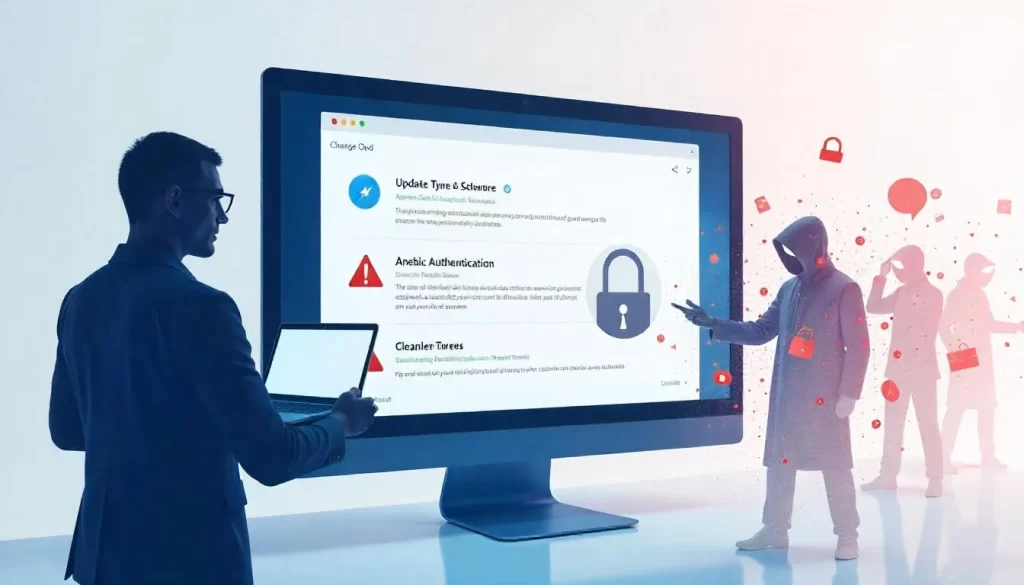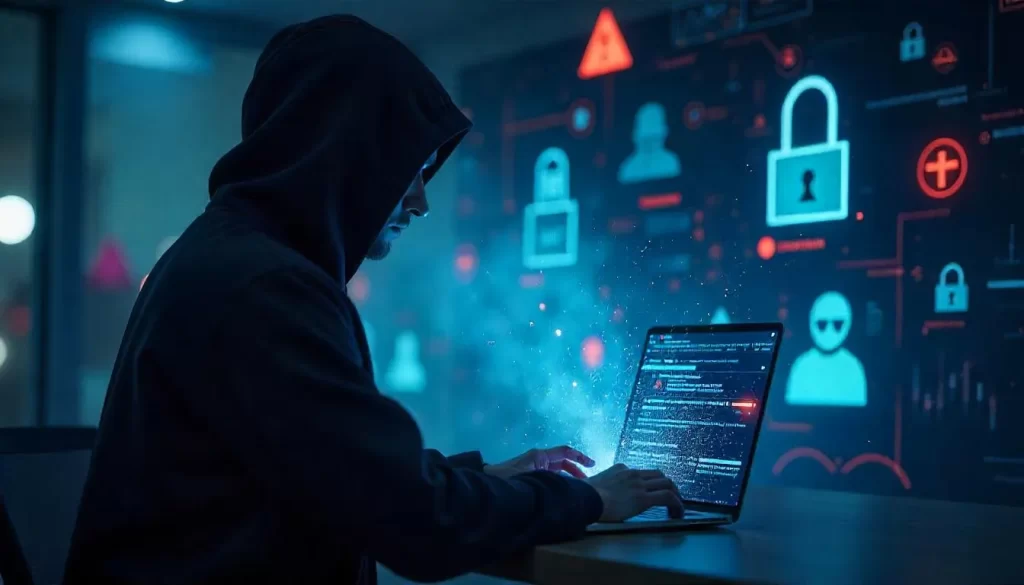In today’s digital world, maintaining good cyber hygiene is crucial to protecting your personal data and online privacy. With increasing cybersecurity threats, password monitoring, and breach detection tools have become essential in identifying vulnerabilities and securing digital identities. This article will summarize the key actions you can take to protect your information and ensure that you stay vigilant in the face of potential threats like pwned passwords and data breaches.

What is Cyber Hygiene and Why Does It Matter?
Defining Cyber Hygiene
Just like physical hygiene, cyber hygiene refers to the practices and habits that keep your digital life secure. It includes steps like using strong passwords, updating software, and using encryption to safeguard your data. These preventive measures can protect you from data breaches, identity theft, and cyberattacks that arise from pwned passwords and pwned emails.
Related Posts
- Impact of Pwned Passwords and Accounts
- What Does “Pwned” Mean?
- Behind “Have I Been Pwned”: Database and Functionality
Why Is Cyber Hygiene Important?
Maintaining proper cyber hygiene ensures that your digital identity remains secure. With hackers increasingly targeting weak security practices and unprotected personal data, a proactive approach to cybersecurity awareness can significantly reduce the risk of becoming a victim of cybercrime. Good cyber hygiene not only protects individuals but also businesses from losing sensitive data to breaches and attacks.
The Role of Monitoring Tools Like “Have I Been Pwned”
Tracking Your Data with “Have I Been Pwned”
One of the most effective ways to monitor your digital security is by using breach detection tools like “Have I Been Pwned”. This platform allows you to check if your email address or password has been exposed in a data breach. If you find that your data is part of a breach, it’s an immediate signal to update your passwords and secure your accounts.
“Have I Been Pwned” also provides email alerts, notifying you if your email or password is involved in any future breaches. This kind of password monitoring is vital for staying ahead of potential threats, helping you act quickly and prevent further damage.
Using Email Alerts to Stay Informed
By setting up email alerts with services like “Have I Been Pwned”, you are automatically notified whenever your data is compromised in a new breach. These alerts give you the chance to take immediate action, such as resetting passwords or changing security settings, to protect your personal data and secure digital identity.
How to Prevent Being Pwned: Proactive Steps
Using Strong, Unique Passwords
The first step in password protection is using strong, unique passwords for each of your online accounts. Avoid using common or easily guessable words, and instead, opt for a combination of letters, numbers, and symbols. This helps prevent your accounts from becoming vulnerable in the event of a data breach.
Enabling Two-Factor Authentication (2FA)
Two-factor authentication (2FA) provides an added layer of protection, requiring a second verification step—such as a code sent to your phone—when logging into an account. Even if your password is compromised in a data breach, 2FA makes it harder for hackers to access your accounts.
Regularly Monitoring Your Accounts
Regularly checking your email and social media accounts for suspicious activity is an important part of maintaining cyber hygiene. If you notice anything unusual, take swift action to secure your account, change your passwords, and enable 2FA.

The Impact of Breach Detection and Password Exposure
Protecting Against Cyber Threats
The exposure of pwned passwords can have a devastating impact on both individuals and businesses. When personal data is compromised, it can lead to identity theft, account takeovers, and financial fraud. Using tools like “Have I Been Pwned” to detect password exposure early can help prevent these risks and enable you to take necessary precautions to safeguard your data.
The Importance of Timely Action
Being vigilant and proactive when it comes to password monitoring and breach detection is key to preventing the exploitation of pwned passwords. The quicker you act after discovering a breach, the better your chances of minimizing damage and recovering your account.
Related Posts
- Risks and Precautions for Pwned Email Addresses
- How to Check If You Have Been Pwned
- How Cybercriminals Exploit Pwned Data
Key Takeaways
Maintaining good cyber hygiene and utilizing tools like “Have I Been Pwned” for password monitoring are essential steps in securing your personal information and online identity. By staying informed about potential data breaches and taking immediate action when your data is exposed, you can significantly reduce the risk of becoming a victim of cybercrime. In today’s increasingly connected world, cybersecurity awareness and regular monitoring are the best ways to protect yourself from pwned passwords and other online threats.
- Cyber hygiene is essential for protecting your digital identity from cybersecurity threats and ensuring data protection.
- Using tools like “Have I Been Pwned” and enabling email alerts can help monitor your personal data for exposure in data breaches.
- Two-factor authentication (2FA), strong passwords, and regular monitoring are essential for preventing pwned passwords and maintaining secure digital identities.
Frequently Asked Questions (FAQs)
What is cyber hygiene?
Cyber hygiene refers to the daily practices and habits that ensure your digital life remains secure, such as using strong passwords, enabling two-factor authentication, and staying updated on security protocols.
How can I monitor if my email or password has been exposed?
You can use tools like “Have I Been Pwned” to check if your email address or password has been involved in any known data breaches. Setting up email alerts allows you to stay informed about potential security threats.
What should I do if my password is pwned?
If your password is pwned, immediately reset it, enable two-factor authentication (2FA), and monitor your accounts for any suspicious activity. Additionally, use a password manager to store strong and unique passwords for each account.
How can I prevent being pwned in the future?
To prevent being pwned, use strong, unique passwords, enable two-factor authentication (2FA), and regularly monitor your accounts using tools like “Have I Been Pwned”. Practice good cyber hygiene to maintain a secure digital identity.
